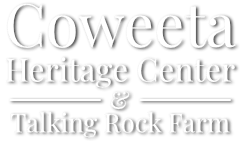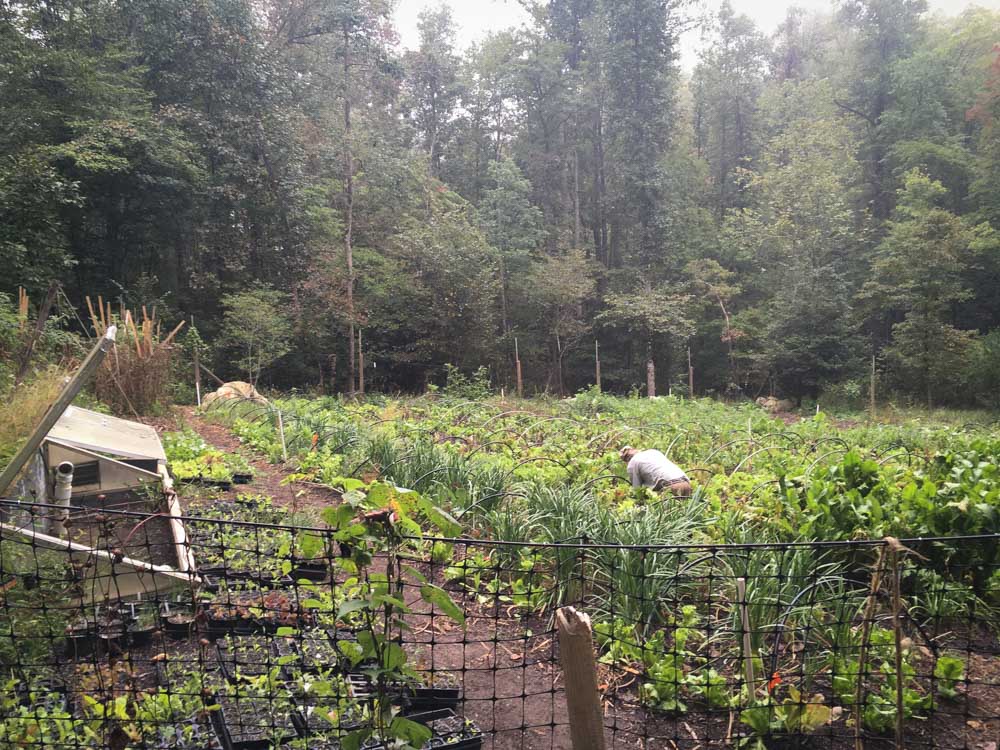I like to think of myself as a farmer
I like to think of myself as a farmer, but I realize what I am farming isn’t the produce that grows in my garden, but rather the hordes of microbes, earth worms, and inbetween critters that live there mostly in the soil. My job is more a care taker of the soil; a nurturer of this living organism that we can’t or don’t usually see unless we look under a microscope. We don’t have to know that it is there to know what is going on. Every year I gather up leaves from our property and the road leading in and just pile them up. Right now if you stuck you hand into the pile it would feel warm, maybe even hot. That is the result of all the fungi and bacteria breaking down or rather consuming the organic matter and nutrients in the leaves. They are doing a great job for me by breaking down the large mass of leaves into a more compact and usable form for mulching in the garden. This is what I use to feed the soil micro-organisms which in turn feed the plants. I believe the basic tenant of organic farming is that our job is to take care of the soil. Healthy soil will produce healthy food that ultimately will allow us to keep doing what we like to do. In this case for me it means spending time in my garden. The greens and health food I consume gives me the energy to keep going. In broader terms this is what is referred to as sustainable agriculture. Third world farmers have been practicing this for a thousand years or more and they are able to grow year after year on the same plot. Modern farming practices are rapidly degrading our soils to the point of making them unfarmable.
I sometimes talk about “my” garden, but in reality my garden owns me. I visit it and it tells me what I need to do not so much in words but in the way it is behaving. Healthy plants let you know they are healthy or happy. They are vibrant, lush, colorful and perhaps fragrant. There is so much we are just learning about how plants communicate with the world around them. They can signal insects, bees in this case, that they have nectar for them, or that another bee has just visited and there isn’t any nectar. This may be communicated through electric charge or scent or whatever. There is lots of mystery that we just are beginning to see, so when I say that my garden speaks to me, I am talking on a very basic level: water, nutrients, space, shade, etc. If plant is too crowded it will let me know by how is is growing, the color of the leaves and taste and quality of the plant.
On another level, my interaction in my garden is my connection with nature and I think this is true for many folks who have a garden. Our technological modern world tends to separate us from the natural world by enclosing us behind walls, inside cars, on pavement, and many other ways. Even screens on windows separate us from the nature and the Great Out Doors. They do serve a purpose though. All these things become distractions that keep us from connecting with our natural world that is all around us. Our connection with nature is probably critical to our mental health and the health of our planet. Kids need to develop a relationship with nature. They need time to explore and connect with nature. Out of this relationship develops a need to care for the earth and protect it. Without these essential relationships our children and future generation will lose a respect for and caring of the environment. As the environment becomes more strained and pushes back, they will retreat farther and farther into the man-made world which further strains the whole system. One of our local vendors works with kids and they grew strawberries. The kids were amazed as the plants grew and finally produced ripe strawberries. They asked what they should do next? They needed permission to pick and eat the strawberries. I’m sure this experience reinforced their connection to the natural world. Our system of agricultural production limits our access to these experiences. We see food as something we find in a grocery store and packaged in neat little boxes or containers. We become removed from the essence of that food and its relationship to the natural world. The closer you can get to where that food comes from the better. Even if that means going to your local farmers market and purchasing your food from a local farmer. You have cut out one step by purchasing food directly from the person who grew it. There are several reasons for this: one being that you have an intimate connection with the person who grew and harvested the food. Secondly, you are more aware of the seasonality of what is available in your area. And thirdly, you can hear the story behind the growing of that food. I try to produce a newsletter that details some of what is going on in the garden the previous week: rainfall, growth, bugs, changes. I also discuss how I care for and tend my garden.
On a deeper level one can go out into nature and directly gather and harvest food to consume. This is refered to as wildcrafting. This cuts out the more artificial steps of preparing the soil, planting a seed, watering and finally harvesting. Wildcrafting more intrinsically connects us to the natural world. We can see where plants like to grow and taste food at its peak of freshness. It is just like the children who have grown the strawberries. If you are driving by in your car at 60 miles per hours, you just can’t see the world around you.
I have been on a long journey and struggle to move from food that is highly processed to healthier fresh food. Cooking from scratch helps us appreciate more the food we eat. The Slow Food Movement has been instrumental in this.
Gardening can be as simple as having a pot on your deck with some herbs or lettuce growing that you can easy harvest and use in cooking. Every school needs to have a garden where students can connect with their food and ultimately the earth around them and they need to go out in nature and harvest and eat food.
The goal of our “school” here which really isn’t a school but just a place to live and learn is to get a little closer to where our basic needs come from whether that is cutting wood to heat your house or producing electricity to power a light from water falling and turning a wheel to move electrons through wires. These experiences from wildcrafting, growing your own food, producing your own power, building your own structure from lumber you have sawn help get us closer to the source of where our sustenance comes from. That source is the world around us, and developing this relationship helps us become more keen about what the world needs from us to care for it. We are stewards of our environment not its master.
As a farmer, the two things of most importance to me are the health of the soil and the health of folks that I help feed. Our bodies can’t work effectively unless they have adequate nutrition. With the right foods that are high in nutrients and other factors we can operate most effectively. You can’t get that in a vitamin pill. Locally grown foods offer better quality and more nutrition as they haven’t sat on the shelf for an extended time. I recently attended a program given by a chaplin. Her message was that modern medicine has its limits. And heroic efforts by doctors to keep patients alive often fail or reduce the quality of life of those they are trying to save. In a sense, doctors have their hands tied. It is up to us to maintain our health through exercise, healthy foods, and good living (you determine what that is). Local organic farmers can offer us the best in fresh local foods that can help us keep healthy and enjoy life to the fullest. Wouldn’t it be great if farmers got the respect that doctors do? Farmers do as much or more to keep us healthy and alive! Why would we chose anything less than the best foods available for our health? Just as we would want the best doctor if we need their help. How do we compensate farmers for their time and effort?
Unfortunately, for many folks, the heroics of doctors can not reverse lifelong patterns of eating, lack of exercise or in some cases just poor genetics. We will all die eventually! Wouldn’t it be great if we could die healthy?
My goal is to produce the healthiest food available to help you feel your best.

